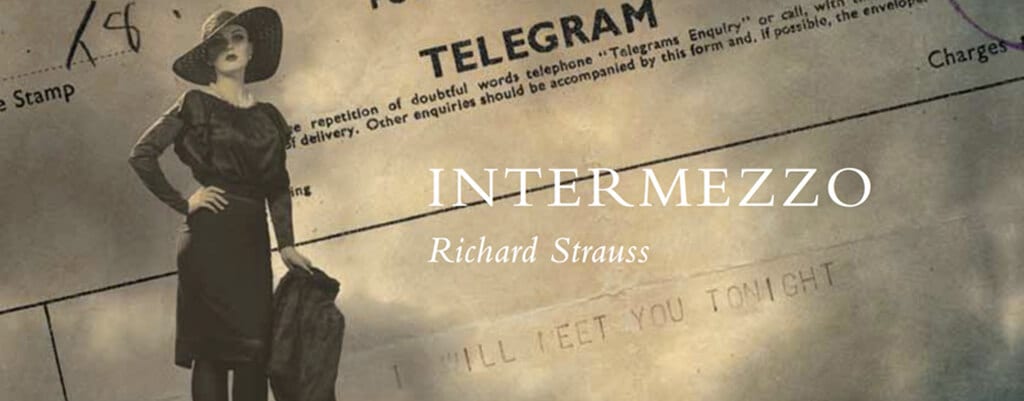This is a difficult opera to like. Strauss wrote his great operas between 1905 and the start of the Great War – after 1914 he struggled to find the subjects to inspire him. This “bourgeois comedy” – based on an incident in his life with his wife Pauline – was a very curious choice. Strauss had difficulty finding a librettist so he wrote the words as well as the music. By all accounts, Strauss was devoted to his fiery wife but the portrait of her in Intermezzo is unflattering – not to say downright insulting. And despite many subtle touches in the Garsington production, and a brave performance by Mary Dunleavy in the demanding role of Christine, the neurotic wife, my dislike of the opera remains unaltered.
Bruno Ravella and Giles Cadle, director and designer, have created a version that fits the small Garsington stage beautifully. The setting is their house in Grundlsee, and the other scenes – on the toboggan run where Christine bumps into the baron and in the rooms in Vienna where Christine’s long-suffering but insufferable husband, the composer Storch, meets his male friends – are cleverly conjured out of the basic “house by the lake” setting. Being able to see all the rooms in the house at once allows for some telling moments of family discord.
Mary Dunleavy is a convincing Christine, capturing the capricious and twisted emotional logic of the role. Her soprano is not a thing of beauty and, in some of the angry moments, lost its accuracy but it is a long and unrewarding role and she was in control throughout. Mark Stone played Storch/Strauss and, though he has a fine baritone voice, he was sometimes too loud for the Garsington acoustic. He was true to the composer’s characterisation but since that is of a saint, with only minor flaws, it was not engaging. Some of the minor roles are sung and acted very well. Ailish Tynan as Christine’s maid is spot on and Sam Furness as the baron who Christine picks up at the toboggan run – and with whom she has a chaste flirtation – sounds fine and has real comic flair.
If you love Strauss – and I do – the music is what saves the evening. It is full of the stunning chord shifts and lush orchestration that made him the maestro of Dresden and Jac van Steen conjures some fine playing for the Garsington orchestra. It’s an evening for the Strauss fan but perhaps not for the less devoted opera lover.

